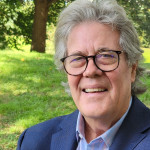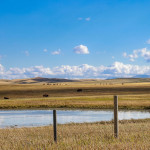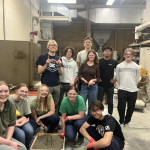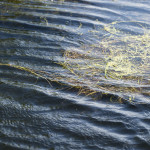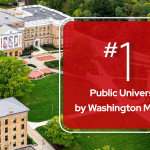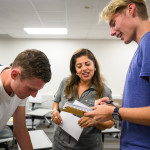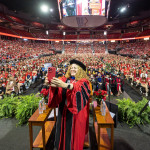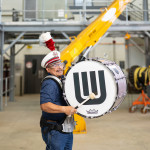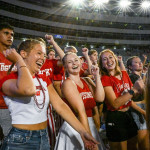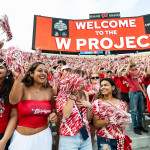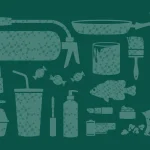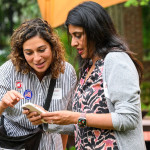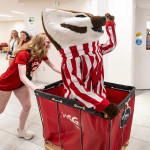Campus news Latest News
Author, Washington Post journalist David Maraniss to visit UW–Madison as fall Journalist in Residence
During his residency, Maraniss will connect with faculty and staff, conduct classroom visits and meet with students of history, journalism and African American studies, among other disciplines, to share experiences from his career as a chronicler of America.
Streamlining energy regulations on Native American reservations could help alleviate poverty
The researchers identified multiple barriers to development that help explain the disparity between clean energy projects on and off reservation land. One of the biggest is the complexity and uncertainty of the permitting process — for building both the facilities and the transmission lines that feed the generated energy into the power grid.
These students tapped into new communities through student orgs
These students enjoyed meeting groups of like minded people and doing new activities, from bird-watching to engineering projects in Africa to hearing from professional journalists.
UW–Madison supports multi-million-dollar U.S. clean energy project to benefit rural Wisconsin communities
Dairyland will use the funding to procure 1,020 megawatts of renewable energy through four solar installations and four wind power installations across rural portions of Wisconsin, Iowa, Minnesota and Illinois.
New vice chancellor for research feels at home on the shores of Lake Mendota
Dorota Grejner-Brzezinska oversees the Office of the Vice Chancellor for Research, boasting more than $1.52 billion in annual research expenditures, a figure that puts UW–Madison in the top 10 in the nation among universities for volume of research.
Aquatic invasive species are more widespread in Wisconsin than previously thought
The analysis highlights several lessons learned through four decades of data collection, research and experiments conducted by the North Temperate Lakes Long-Term Ecological Research program.
Washington Monthly ranks UW as No. 1 national public university
The rankings are based on a school’s contribution to the public good in three categories: social mobility, research, and providing opportunities for public service.
Braving the first day of school, with keen minds and charged-up laptops
On the first day of class at the University of Wisconsin–Madison, we followed along with an undergraduate student, a graduate student and a professor who all began their respective journeys.
UWPD investigating vandalism at Library Mall
The UW–Madison Police Department is investigating an incident of vandalism that occurred at around 3 a.m. on Sept. 4. Several parts of Library Mall, including the Hagenah (Library Mall) Fountain, were vandalized with paint. Crews from Facilities Planning & Management worked quickly to remove the graffiti.
Convocation 2024 welcomes a whole new batch of students to the Badger Universe
For thousands of freshmen and transfer students, New Student Convocation at the Kohl Center Tuesday served as their formal welcome to the Badger Universe and the start of their academic careers.
New State Democracy Research Initiative, election experts and more from UW–Madison
Experts from the University of Wisconsin–Madison are available to provide an on-the-ground look at Wisconsin politics and provide analysis and commentary about national and state races, polling, debates and the key issues driving voters
With marching band spirit and classic Wisconsin scenery, UW–Madison’s new TV spot highlights a far-reaching impact on the state
UW–Madison’s new 30-second TV spot, “Band Together,” highlights the university’s deep-rooted, far-reaching impact on the state, represented by UW Marching Band ambassadors performing “On, Wisconsin!” in a surprising range of real-world settings.
It’s time to Jump Around again, Buttercup!
Wisconsin Badgers football returned triumphantly to a refurbished Camp Randall Stadium on Friday night, kicking off the 2024 season with a 28-14 win over Western Michigan.
W Project: New students enjoy Bucky boot camp
Thousands of new freshmen and transfer students gathered at Camp Randall Stadium on Thursday for a crash course on becoming a Badger.
‘Forever chemicals’ show up in Wisconsin residents
large, population-based study shows that while most Wisconsin residents have some “forever chemicals” known as PFAS in their blood, those who have the highest levels are higher income, older white men who have eaten locally-caught fish.
A warm Madison welcome for new faculty
New UW–Madison faculty members and their families met new colleagues, were welcomed by leadership, and enjoyed brats and burgers at the annual new faculty picnic hosted by Chancellor Jennifer Mnookin on the grounds of Olin House Wednesday.
Follow that cart!
Welcome to the whirlwind few hours when the newest class of freshmen meet their new roommates, bid farewell to their families, and begin their college experience.

